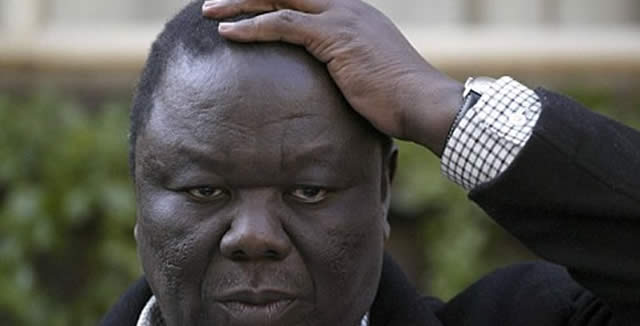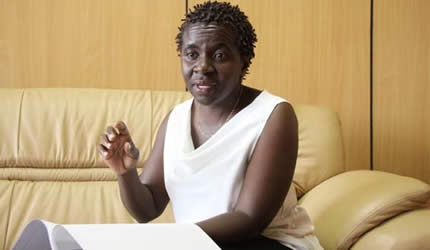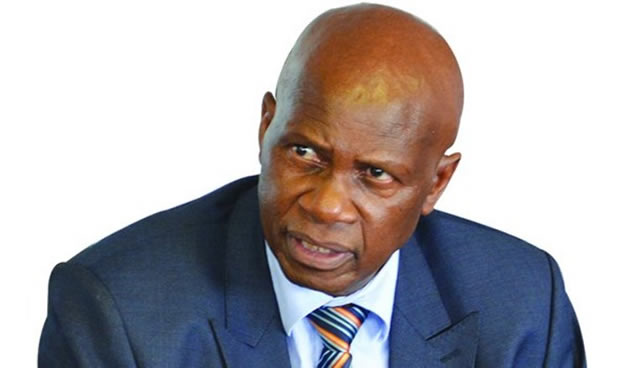The fissile heap called MDC

Tichaona Zindoga Political Editor
THOSE with very basic knowledge of physics may know of a process called nuclear fission, which occurs in an atom of a heavy element whereby its nucleus splits, either through radioactive decay, or because it has been bombarded by other subatomic particles known as neutrinos, as scientists tell us. We are told that this occurs “because the counterbalance between the strong nuclear force — holding the atom together — and the electromagnetic force — pushing it apart — becomes dominated by the electromagnetic force”. We also learn that, if the fission process releases further neutrons, a chain reaction can occur, resulting in a self-sustaining process of continuous fission.
We all know and imagine what the business of nuclear has wrought upon the world and the capability of destruction it hovers over the earth’s head. In fact, it is recorded that when the science of nuclear fission was discovered one Hungarian physicist, Leo Szilard, wrote a letter, which was signed by Albert Einstein, to the American President Franklin D Roosevelt suggesting the creation of a bomb of “epic proportions” with the scientists warning that Germany will make such a weapon — if the Americans didn’t do it.
The rest, as they say, is history.The interest of this piece is not on nuclear science, though. It is about the shape and direction that Zimbabwe’s opposition party called Movement for Democratic Change has taken which has registered a self-sustaining decaying process similar to nuclear fission.
Yesterday, October 12, marked exactly 10 years since the party registered its first split as the singular party was torn right at the centre following disagreements on whether to participate in the re-introduced Senate elections that were slated for November that year.
On that fine day in 2005, October 12, the MDC National Council voted on the issue. It emerged from the vote that those in favour of participation had won 33-31 (with two spoiled papers), but at a Press conference party leader Morgan Tsvangirai, who had been on the losing side, said the vote had been 50-50.
He also claimed he had to use a non-existing casting vote to break the alleged impasse. The party split right in the middle and all the festering problems that had seen violence unleashed on some members and accusations of corruption and tribalism, came to a head.
Tsvangirai was accused of dictatorial tendencies and disregard for constitutionalism. A tussle for power, which saw an attempt by the pro-senate faction to suspend Tsvangirai from the party among other disciplinary issues, ensued. On the other hand, Tsvangirai convened another national council and expelled the “rebels” and “traitors” in the pro-Senate faction.
Thus the two factions, one led by Tsvangirai and another led by Welshman Ncube went their separate ways, the former being bigger the other smaller but all unsuccessful to date in the quest to govern Zimbabwe. Yet that would only be the begging. In the analogy above, it is stated that for a “decay” to occur, there have to be contending forces: the nuclear force, holding the atom together and the electromagnetic force, pushing it apart.
Once this occurs the splits or decay occur spontaneously and uncontrollably. Which is what has taken place within the MDC with the spontaneous splits and directionless movement in the party. It will be remembered that in May 2010, Job Sikhala, who had gone with the Ncube faction formed his own MDC 99.
He was quoted in the media explaining that, ‘‘When we formed the united MDC in 1999, we agreed specifically on ideas, values and principles that we needed to follow. But that agenda has been forgotten by those in the MDC formations and what we’ve done is retrace our footsteps back to 1999 to start afresh.’’
It is rather curious that Sikhala has instead gone back to the MDC led by Tsvangirai. The next major split occurred in 2014 when a group led by secretary general Tendai Biti broke away from MDC-T calling for leadership renewal. Treasurer general Elton Mangoma fronted the break-away, rather too early, while it was generally known that the break-away centred on Biti.
Biti, quite naturally, later broke free of the MDC-T and together with Mangoma and few prominent others came to be identified as MDC Renewal. Interestingly, the party — if we could call it that — further split being drawn between the forces of Mangoma who we were told was power hungry and unable as a leader and Biti.
In June this year, amid the power struggles within the Renewal lobby Mangoma was suspended from the new outfit. However, hardly had the echoes of that suspension died down did Mangoma form his own party, which he called the Renewal Democrats of Zimbabwe (RDZ).
It appears the formation was a knee-jerk reaction to his suspension and imminent expulsion from the Biti-led group. On the other hand, the Biti-led group has since held a congress which ordained Biti as the leader of the party, that is, without going for an election.
Biti’s party is called People’s Democratic Party. But that is not all. A former advisor to Morgan Tsvangirai, and leader of the United States branch, has formed his own party as well. At the end of last month Dr Maxwell Shumba formed the Zimbabwe First (ZimFirst) party. He told his audience at the launch of his party in Murehwa that, “As one of the founder members of the MDC and one of Tsvangirai’s chief strategists, I felt that the movement had lost the vision through greediness.”
He also noted that, “Everyone in MDC is engaged in dishonesty”, which no person of integrity could tolerate. Phew! What a fissile heap the MDC is! Five splits in 10 years is such a huge number for a political party or any organisation to undergo. As if this is not enough, Morgan Tsvangirai has lately been talking about an alleged rebellion against him by some senior members of his ever splitting party.
It is permutable that as the MDC-T is entertaining hopes of a coalition with Joice Mujuru, it may face another defining, decaying moment. Worse still, there is that resolution not to participate in future elections in the absence of certain changes. Some members of that party may disagree with that and it has a potential of splitting the party once again.
There has to be something fundamentally wrong for such spontaneous fissures and decay to happen. One explanation is that the party does not have holding glue, a strong nucleus. Its nucleus and objective was the overthrow of President Mugabe and his ruling Zanu-PF. Without a single and understandable ideology, this was such a poor nucleus facing the electromagnetic field of different forces in the mixed multitudes that made the MDC.
The other problem, perhaps the biggest, is that Tsvangirai himself, as the nucleus of the party having been leader through his charisma in the old trade union days. That is what everyone from Welshman Ncube to Maxwell Shumba has been saying. Only Tsvangirai and his ever diminishing hangers on do not believe that.
Which is why the MDC will continue to split spontaneously and exponentially. The chain reaction will continue and the splits will be a self-sustaining process.









Comments